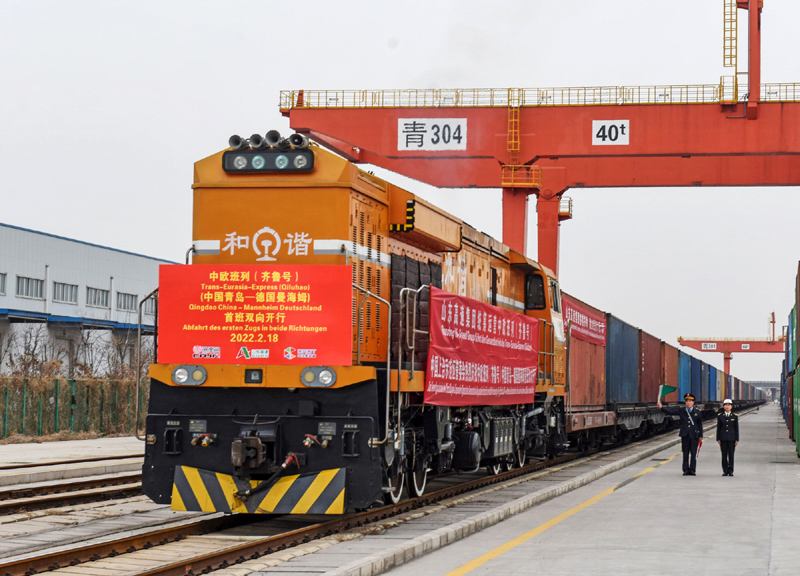Sino-German ties keystone of stability and prosperity
- By Tom Fowdy
 0 Comment(s)
0 Comment(s) Print
Print E-mail China.org.cn, June 2, 2022
E-mail China.org.cn, June 2, 2022

Germany and China are two crucial global stakeholders. One country represents the largest economy in Europe, while the other is the largest economy in Asia, with each establishing itself as the economic and commercial nexus of their respective area of the globe.
Over the past decades, this has allowed Berlin and Beijing in the post-Cold War era to develop a robust bilateral relationship that has been traditionally premised upon cooperation, pragmatism, dialogue, and moderation.
Such a relationship remains particularly important for the two countries to better harness the stabilizing, constructive, and steering role of their relationship, especially when it comes to the complex changes in the international landscape, including a marked rise in difficulties and challenges for global security and development.
Germany's foreign policy is facing unprecedented pressure, but it strives for China to support the aims of European security, as would any leading country in the same position. China is not opposed to this, but calls for a new "European Security Mechanism" that is in "the hands of Europeans themselves" and not dancing to the tune of third-party countries which manipulate the existing architecture for the objectives of global military supremacy and unilateral hegemony. By doing so, those countries strive to take away from Europe as opposed to giving to it. Germany has long recognized the need for this "strategic autonomy," even if it is forced now to take tough positions given obvious circumstances.
Yet, in conducting this dialogue with China, it becomes clear that Germany should never allow these pressures to undermine and jeopardize its critical relationship with Beijing, a path that risks further global division, confrontation, and the consolidation of a Cold War context. For all involved, this would be disastrous.
Germany recognizes that while it may have its interests, its values, and global outlook, history should not be allowed to repeat itself. Progress must be linear, especially in the context of avoiding another Cold War. As a result, the recent virtual summit between leaders of the two countries has sent a clear message that China continues to attach great significance to making this relationship functional and mutually beneficial.
Just as China said there is no change in its commitment to developing ties with Germany, which includes no change in China's sincere wish for closer cooperation with Germany, and there has been no change in China's conviction that both countries can make a great difference together.
We may live in uncertain times and face enormous challenges, but we also have an opportunity to resolve our problems. China is not Europe's enemy and is holding open the door for diplomacy and dialogue.
For two such large regions of the world to alienate each other would be disastrous and undermine the foundations of the post-Cold War prosperity and order our world has established. Herein summarizes the importance of Germany-China relations, a keystone of stability, certainty, prosperity, and global engagement.
Tom Fowdy is a British political and international relations analyst and a graduate of Durham and Oxford universities. He writes on topics pertaining to China, the DPRK, Britain and the U.S. For more information please visit:
http://www.china.org.cn/opinion/TomFowdy.htm
Opinion articles reflect the views of their authors, not necessarily those of China.org.cn.
If you would like to contribute, please contact us at opinion@china.org.cn.






Go to Forum >>0 Comment(s)